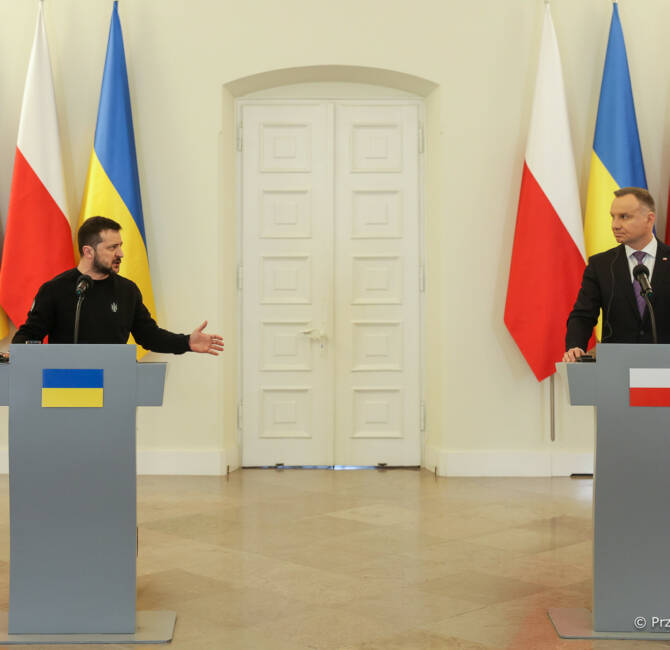Germany/Poland – Usually this is is a little known issue outside of Poland. Poland demands recognition by Germany of its Polish minority, a demand essentially supported at the political level by the PiS and the national-conservatives of Konfederacja. While Berlin turns a deaf ear to this issue, the Polish government has just taken matters into its own hands.
No more than an hour of German lessons per week for German minority children
This is why Polish Minister of Education, Przemysław Czarnek (PiS), has just decided – unilaterally – this Friday, 4 February, to reduce German classes from three to one hour per week for German minority children in Poland. This affects mainly Upper Silesia (voivodeships of Opole and Silesia) but also in the south of former East Prussia (voivodeship of Warmia-Masuria). With the budgets thus reduced, Mr. Czarnek intends to promote the teaching of the Polish language to the children of the Polish diaspora in Germany – whom Berlin de facto refuses to recognise as a national minority, which the Polish right-wing considers a discrimination.
Germany does not recognize the Polish diaspora as a minority
MP Janusz Kowalski (Solidarna Polska), who is very committed to this issue, welcomed the decision on Twitter:
“We are restoring symmetry between Poland and Germany! We reduce the number of lessons for the German minority from 3 to 1 hour per week, and allocate 30 million PLN for the teaching of the Polish mother tongue in Germany, who does not spend a single euro in this domain. No more discrimination against Poles in Germany!”
German minority protest
Representatives of the German minority strongly condemned this measure and protested through a petition with the support of the opposition (PO). Whilst the Polish Commissioner for Human Rights, Marcin Wiącek, considered that this decision by the authorities could violate the European Council’s Framework Convention and the European Charter for Regional or Minority Languages as well as the Polish Constitution, Article 35 of which guarantees that “to national or ethnic minorities the freedom to maintain and develop their own language”. He thus wrote to Prime Minister Mateusz Morawiecki:
“I cannot accept that the reduction in expenditure is done at the expense of communities or groups that are often marginalised in various spheres of social or cultural life,
which state institutions are particularly obliged to support”.
Unequivocal discrimination according to the German SPD
For its part, the German Embassy in Poland recalled that 5,000 children of Polish origin were currently receiving Polish lessons in North Rhine-Westphalia, while the German Social Democratic Party (SPD) – the Chancellor’s party Olaf Scholz – described this decision by the Polish authorities as
“unequivocal discrimination” intended to “score points in domestic politics by means of anti-German rhetoric”.
The President of the Sociocultural Society of Opole Germans, Rafał Bartek, claimed that
“discrimination against the German minority in Poland has become a fact”.
In a press release from his organisation, we can read in particular that “despite numerous actions taken by the leaders of the German minority, as well as by parents and teachers, despite numerous protests, meetings and discussions,
the Polish government has decided to introduce a solution which openly discriminates against a national minority, the German minority”.
—
The German minority in Poland is 148,000 strong (according to the 2011 census), 43,000 Polish citizens having declared themselves of only German nationality (ethnic group) and 103,000 having also declared another nationality, including Polish. At the same time, organizations representing the German minority claim 182,000 members (2008 figures), while the German embassy estimates the German minority at between 300 and 350,000 people. These people are the descendants of the indigenous population of the former Prussian provinces of Silesia, East Brandenburg, Pomerania and southern East Prussia assigned to Poland at the end of World War II – the vast majority of the inhabitants of these provinces (about 9 million inhabitants according to the 1939 census) having been expelled in the immediate post-war period, to allow the installation of Poles themselves expelled from the eastern provinces of pre-war Poland which were becoming part of the Soviet Union (Lithuania, Belarus and Ukraine). The “ethnic” Silesians – living today mainly in Germany – were the descendants of Germanic tribes who had settled in the region before the 5th century, of Germanized Slavs from the 16th century, when the province became Austrian (1526), and of German settlers who settled there from that time. Silesia became a Prussian province in 1742. The East Prussians were the descendants of the ancient Prussians – Germanised Balts under the rule of the Teutonic Order (1230-1561) – and German colonists who had settled there since the Middle Ages.
The Polish diaspora (or minority) in Germany is around two million strong, of which 783,000 have exclusively Polish citizenship (2016). They mainly live in the Ruhr (700,000), the Rhineland, Berlin (180,000) and Hamburg (110,000). Before World War I, a large native Polish population represented the majority of the population of the eastern Prussian provinces of West Prussia (52% Poles in 1819), which became Prussian during the partition – imposed by force – of Poland in 1773, and Posnania (77% Poles in 1819), which became Prussian in 1815. When Poles from these two provinces came to settle in the Prussian Rhineland in the 19th century, they were already, in fact, Prussian citizens (then Germans after 1871) and were recognized as a Polish national minority in Prussia. Later, these two provinces logically became Polish again in 1919, when Poland regained its independence. Nevertheless, the Polish minority continued to be recognised, because it was still partlylocal to East Prussia, Pomerania and Silesia – all territories that would become Polish in 1945. This recognition was withdrawn on September 7, 1939 by decision of Adolf Hitler. Since 1945, insofar as all the territories, where the Poles were indigenous, have become Polish, the German authorities consider people of Polish origin as “ordinary” immigrants.




